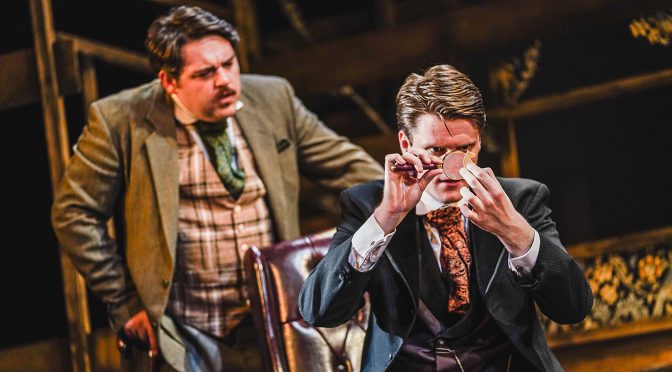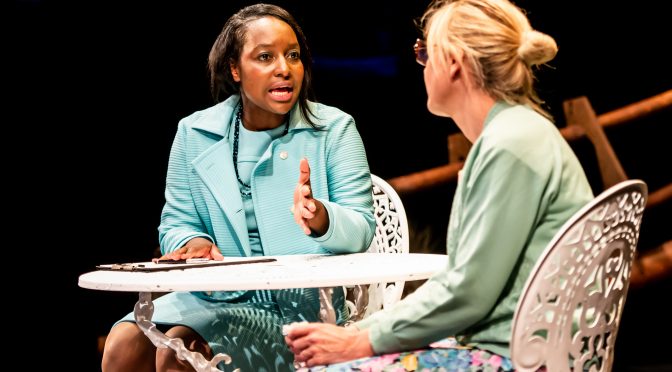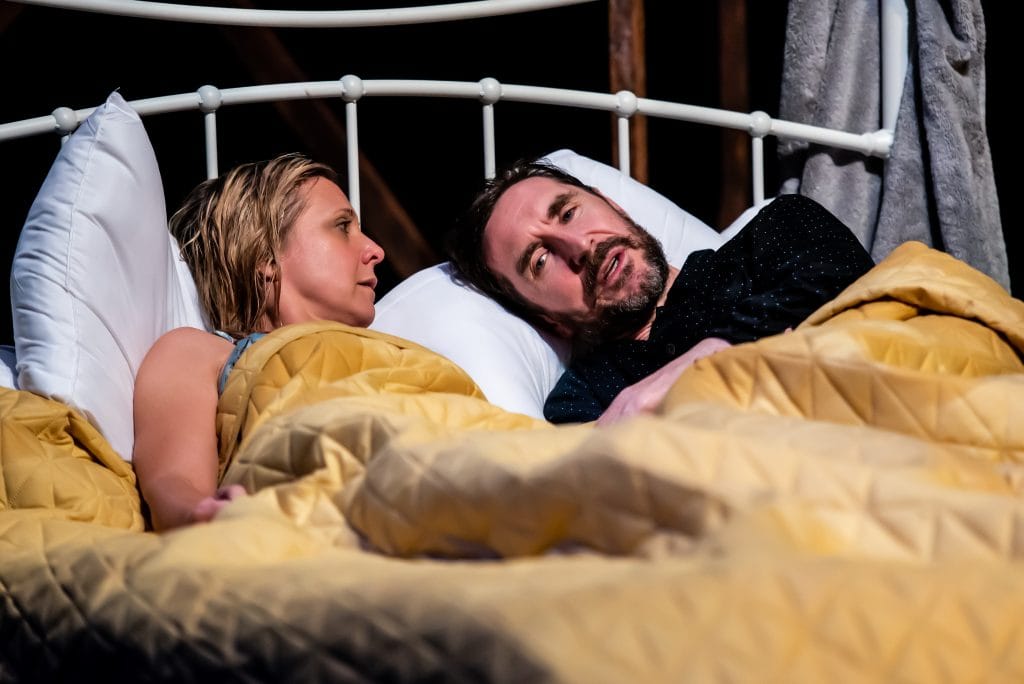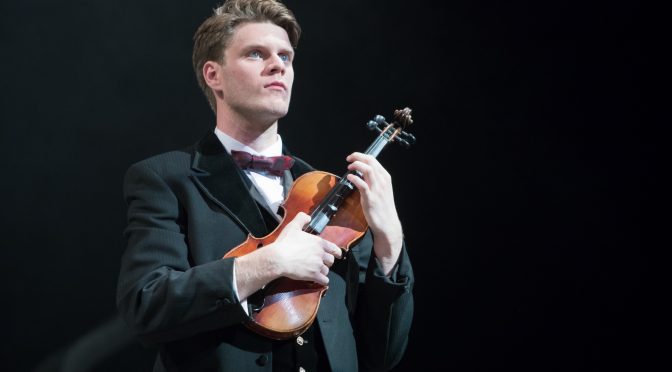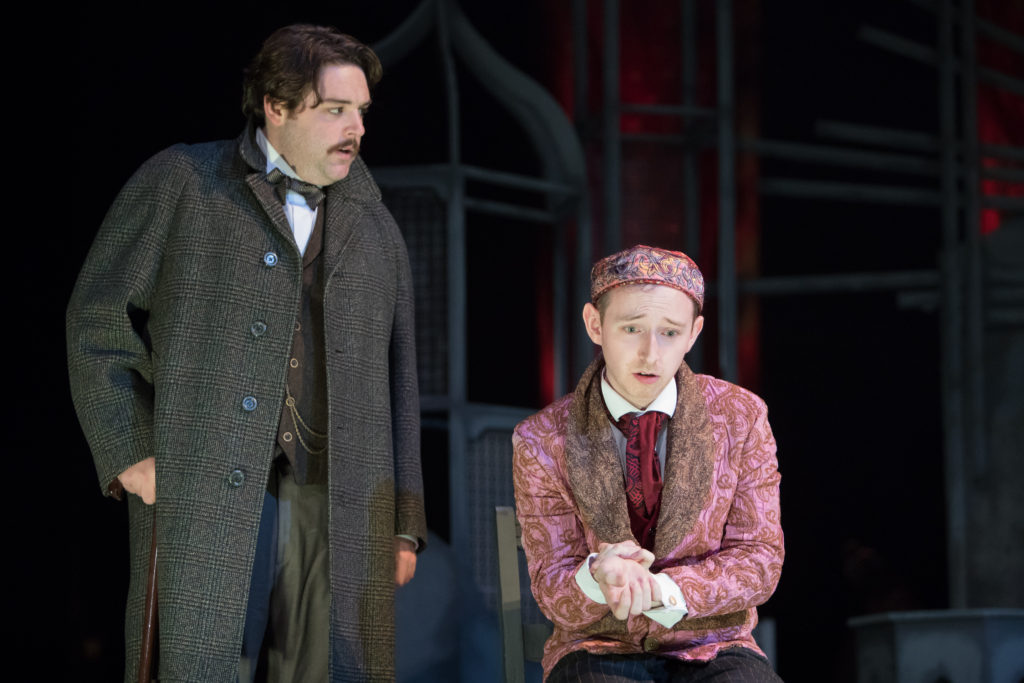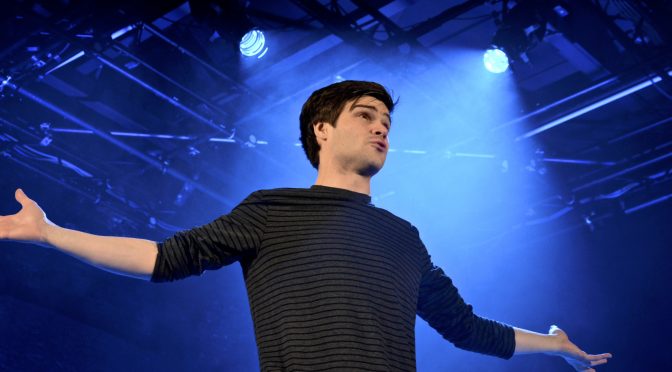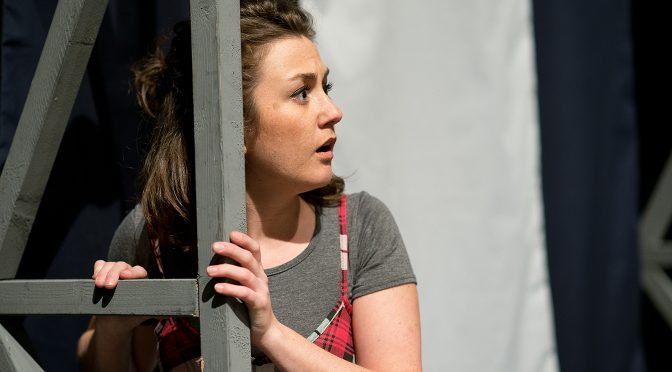Director and writer Nick Lane has experience when it comes to Arthur Conan Doyle’s work. A previous adaptation of The Sign of Four was entertaining but this new production is even better – harder working and more serious. In addition to a fine mystery story, a “snorter of a case” for Sherlock Holmes, we get romance in America’s Wild West. Sherlock Holmes and the Valley of Fear is great value, high quality theatre.
Lane’s adaptation is smart. Flipping back and forth between crimes in Sussex and Pennsylvania is a sensible change from the source material and is impeccably handled. Tristan Parkes music for the show aids comprehension and creates atmosphere.
The lead performers are experienced, too. Luke Barton is an energetic and sometimes playful Holmes. Joseph Derrington is an affable Watson you can care about. Watson’s narration is a highlight – wonderfully clear – while identifying Holmes as the one with “the true flair for drama” shows both the character and Lane as astute observers, adding insight and theatricality to the master detective. Barton and Derrington have fantastic chemistry and there is a tender moment between them, superbly acted, that is further neat addition on Lane’s part.
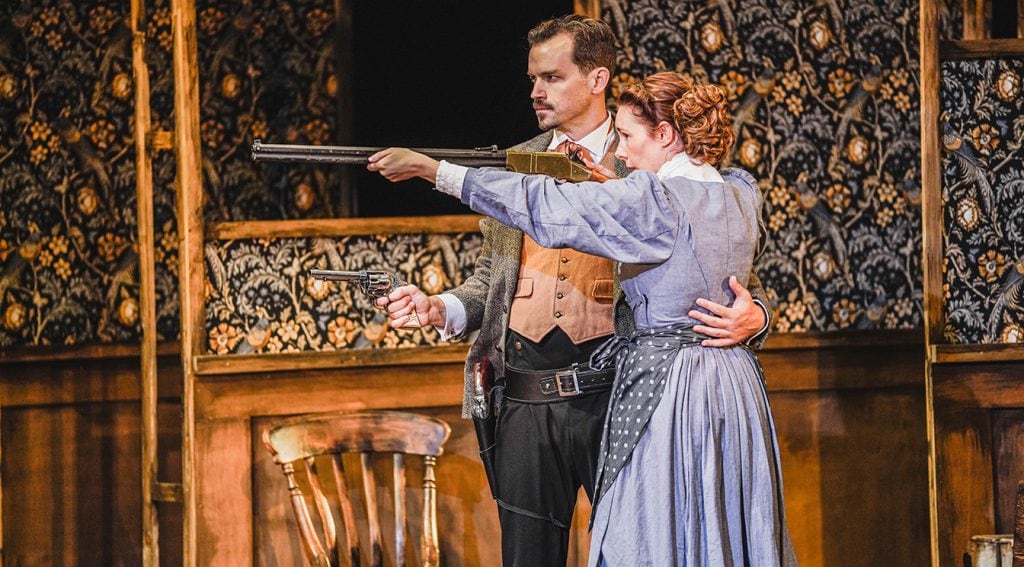
There’s more, namely the valley of fear itself, which we visit a lot. The supporting cast takes on a lot of roles. Blake Kubena makes a fine romantic lead, while Gavin Molloy has a good line in psychopaths (there’s a bold twist in the adaptation here that’s a real delight). Alice Osmanski is particularly hard working with characters that are less well written and a lot of costume changes (well done to designer Naomi Gibbs).
Even Barton and Derrington double up roles. The extra parts they play make clever contrasts and they perform them well. The production does need another body (two more wouldn’t hurt), but the cast gets to impress by bringing so many characters to life. A great job from start to finish with big brains behind it.
On tour until 26 November 2022
Photos by Alex Harvey Brown

